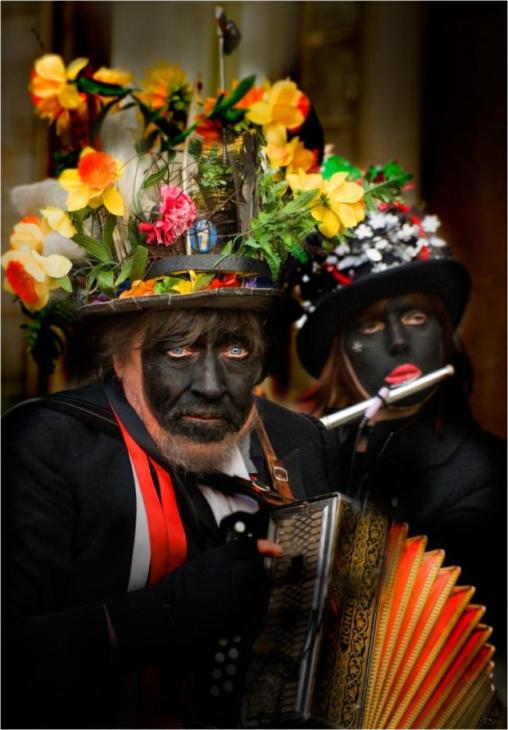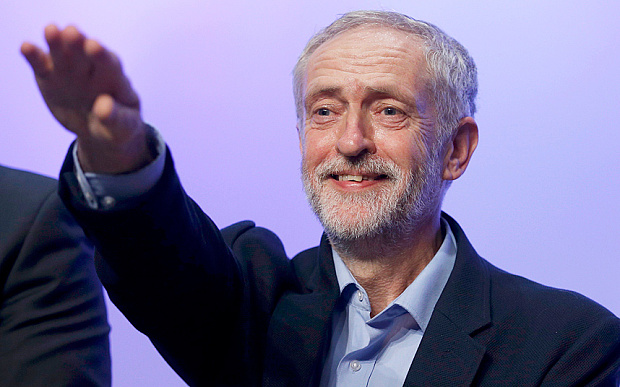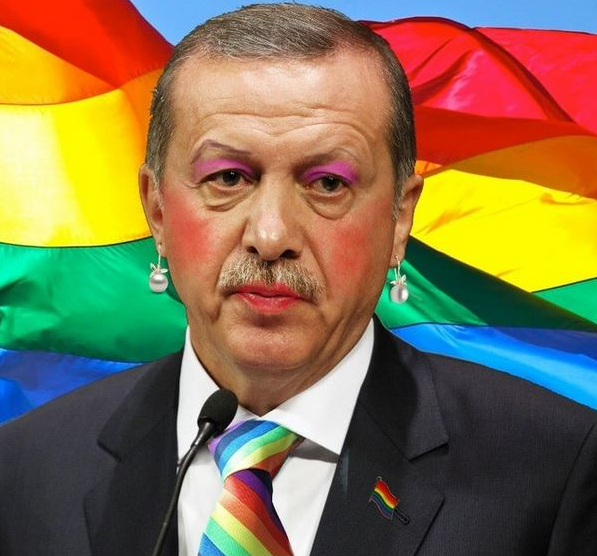
Shrewsbury Folk Festival has banned Morris dancing teams from wearing full-face black make-up as part of its routine. Under threat of legal action from the quango FRESH (Fairness and Racial Equality in Shropshire), the festival felt compelled to ban the acts but have expressed hope the issue can be discussed in public. And now it has been reported in local press and the Daily Telegraph. Although FRESH’s discovery that the Shrewsbury Folk Festival is actually a seething hotbed of ‘Hate’ runs counter to the impression of everyone who attends, FRESH’s principles include ‘challenging oppressive and discriminatory views and behaviour’. In their view, the tradition of ‘border Morris’ which has involved the use of black make up for half a millennium is a bit like the ‘Black and White Minstrel Show’ that existed on the BBC up to the 1978 when it had become a source of sensitivity and embarrassment. The BBC show however did at least warrant certain allegations of insensitivity since the blacked-up characters did behave in racially stereotypical ways that many in society were wanting to challenge. That is unlike border Morris. The BWM show at its peak attracted 21 million viewers, but notably it was never banned by authorities or threatened with legal action. There were petitions and complaints against it, but the decision to axe it wasn’t quite authoritarian, it simply reflected a changing social landscape.
Contrast this with FRESH’s approach to border Morris. FRESH, although it calls itself a community group, has no roots in the community. It only has 30 members, nearly half of whom are Directors, and liaises most of the time with authorities such as the police. The notion they should target a harmless traditional activity, mistakenly seeing it as a far-right racist campaign, is blatantly a misuse of anti-racist resources. Real racism consists in things such as the police deporting minorities back to places like Somalia, broader immigration controls, or violent wars being waged against people of colour, all things FRESH is silent over. They ignore real racism and invent it in the sphere of innocuous entertainment.
Further proof that border Morris is part of a cultural tradition rather than an expression of

modern-day racism lies in the realm of historical study. The very term ‘Morris’ is derived from ‘Moorish’, an allusion to the Moors of Morocco. Morris dancing as has evolved since the 1500s was partly a fusion of Basque inspired imitation of Moroccan dance and even older English pagan rituals of the battle between Summer and Winter, hence the emphasis on the contrast between light and dark. None of these sources of influence are remotely like modern-day racism any more than dancing ‘Gangnam Style’ is ‘racist’ against South Korea.
There are three main harms that have occurred by the Shrewsbury Folk Festival ban. 1) they have curtailed people’s enjoyment. 2) they have banned a cultural expression on the spurious grounds they think it expresses the ‘wrong’ sort of politics. Through doing so, they are politicising art, just as the totalitarian one party state in China polices ‘immoral art’. So it is harmful to society. 3) they have slandered Morris dancers such as the Flagcrackers of Craven (a team who were considering taking part at Shrewsbury), as ‘racist’. But Morris dancers are the gentlest folk you could hope to meet – the idea they are closet racists is grossly offensive and insulting. This is harmful to the individual when done by a quasi-state entity.
May the black faces long dance up and down the country, and may the FRESH faces be sent to Bedlam.


